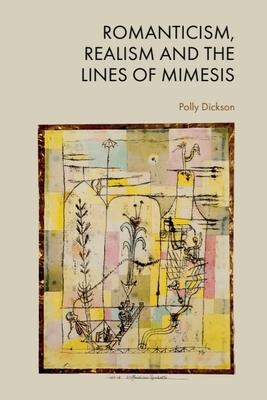Since Plato's Republic, mimesis -- the artwork's tacit claim to reflect or imitate real life -- has faced a near-constant stream of assaults, being accused of naturalising a supposedly uncomplicated relationship between world and fiction. Lines of Mimesis offers a revisionary account of mimesis. Specifically, it proposes a rethinking of the representational attitudes of two literary schools usually understood to be at odds with one another -- Romanticism and Realism -- through close readings of writings and drawings made by two figures usually taken to be proponents of those schools respectively: E. T. A. Hoffmann and Honor de Balzac. Across these readings, Dickson argues that a more capacious understanding of mimesis is achieved when we understand it to pertain not to the reduplication of objects in the world, but to a negotiation of the subject's sensory entwinement with those objects. This new understanding can, in turn, more closely illuminate an artwork's own reflections on its relationship to the world, shedding light on the entanglements and crossovers between Romanticism and Realism.

Since Plato's Republic, mimesis -- the artwork's tacit claim to reflect or imitate real life -- has faced a near-constant stream of assaults, being accused of naturalising a supposedly uncomplicated relationship between world and fiction. Lines of Mimesis offers a revisionary account of mimesis. Specifically, it proposes a rethinking of the representational attitudes of two literary schools usually understood to be at odds with one another -- Romanticism and Realism -- through close readings of writings and drawings made by two figures usually taken to be proponents of those schools respectively: E. T. A. Hoffmann and Honor de Balzac. Across these readings, Dickson argues that a more capacious understanding of mimesis is achieved when we understand it to pertain not to the reduplication of objects in the world, but to a negotiation of the subject's sensory entwinement with those objects. This new understanding can, in turn, more closely illuminate an artwork's own reflections on its relationship to the world, shedding light on the entanglements and crossovers between Romanticism and Realism.